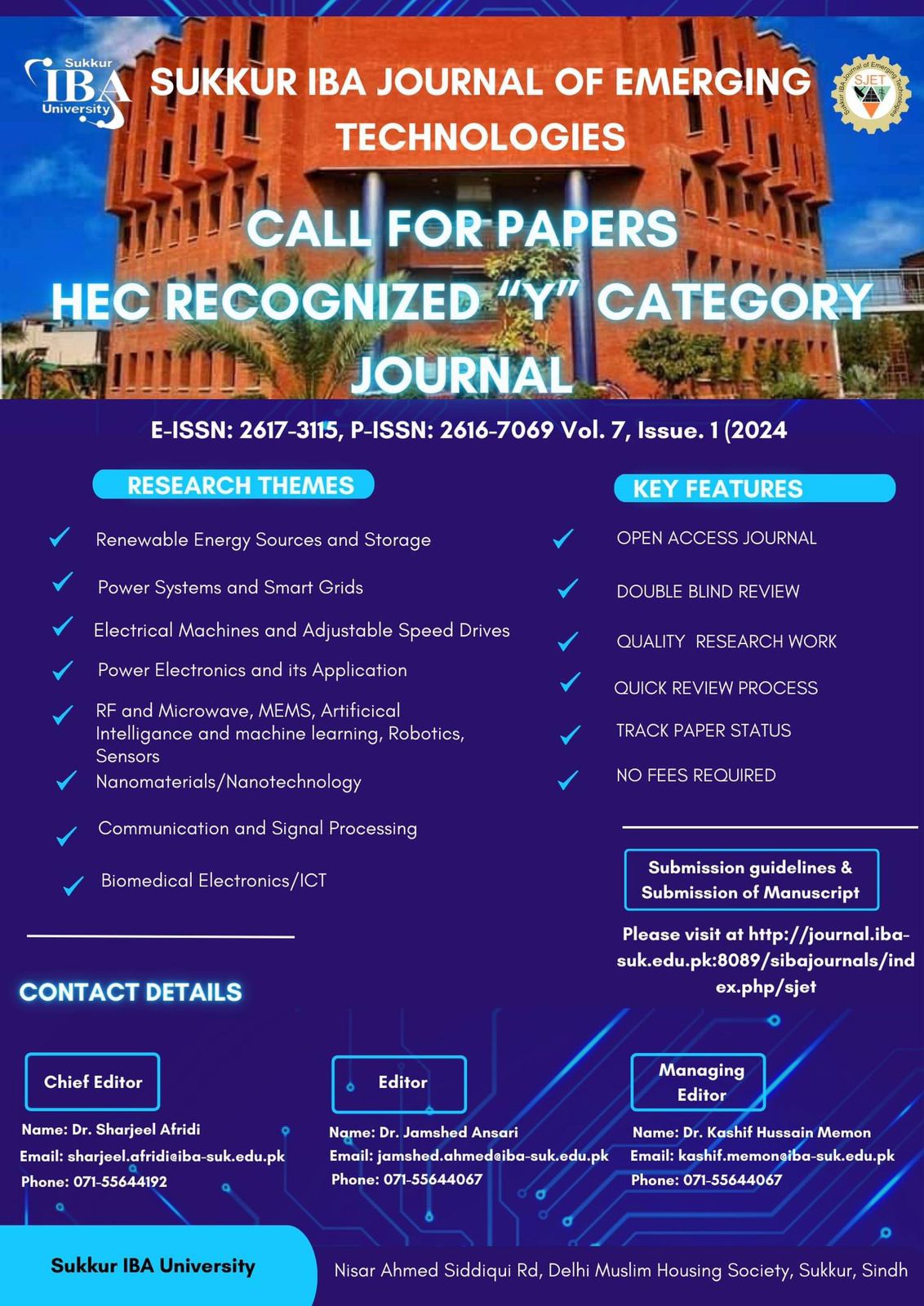Internet of Things Based Transducer Application to Harness Tidal Energy from coastal and offshore Pakistan
DOI:
https://doi.org/10.30537/sjet.v5i1.1073Keywords:
Arduino; dc motors; internet of things; sensors; tidal energy; transducers; tidal turbines; underwater technology; wi-fi moduleAbstract
This paper aims to transform tidal energy into rotation energy for electricity generation and in the course evaluating sea parameters. This is accomplished by integrating the Internet of Things with tidal energy off the coast (and in a home environment), which further enhances the capabilities of this prototype project to remotely monitor sea-like parameters to enable energy production using tidal energy. As South Korea is transducing tidal energy with a total installed tidal power capacity of above 500MW, Pakistan and Middle Eastern countries can benefit from its vast coastal line. This paper proposes a sustainable design that makes the turbine rotate at high speed. A vertical design is chosen, which is bi-directional. The design of the turbine consists of 3 blades, each occupying a 2 square feet area supported by an iron-rod frame. During the experimentation, an average voltage of 5V was generated, whereas the speed of the turbine generated was 75 RPM. It is the first known attempt of its kind supported by indigenous resources. It is proposed that this type of prototype can be scaled, to the coast to produce electrical energy to meet the energy production needs of the region.
Downloads
Downloads
Published
Issue
Section
License
Copyright (c) 2022 Sukkur IBA Journal of Emerging Technologies

This work is licensed under a Creative Commons Attribution-NonCommercial 4.0 International License.
The SJET holds the rights of all the published papers. Authors are required to transfer copyrights to journal to make sure that the paper is solely published in SJET, however, authors and readers can freely read, download, copy, distribute, print, search, or link to the full texts of its articles and to use them for any other lawful purpose.

The SJET is licensed under Creative Commons Attribution-NonCommercial 4.0 International License.












